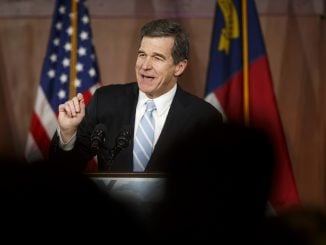
Los Angeles – A federal court in California side with oil companies Tuesday, dismissing lawsuits that blamed them for climate change. The cities of San Francisco and Oakland tried to sue five oil companies, but the judge said the complaints required foreign and domestic policy decisions that were outside its purview.
San Francisco and Oakland sued Chevron Corp, Exxon Mobil Corp, ConocoPhillips, Royal Dutch Shell Plc, and BP Plc last year seeking an abatement fund to help the cities address flooding they said was a result of climate change.
Judge William Alsup of the U.S. District Court for the Northern District of California said that the dangers raised by the complainants were real, worldwide and acknowledge. He took the unusual step of holding a hearing on climate change during the proceedings. Still, the judge ultimately ruled that the plaintiffs were on shaky legal ground.
“It is true that carbon dioxide released from fossil fuels has caused (and will continue to cause) global warming,” the court wrote. “But against that negative, we must weigh this positive: our industrial revolution and the development of our modern world has literally been fueled by oil and coal. Without these fuels, virtually all of our monumental progress would have been impossible. All of us have benefitted. Having reaped the benefit of that historic progress, would it really be fair to now ignore our own responsibility in the use of fossil fuels and place the blame for global warming on those who supplied what we demanded? Is it really fair, in light of those benefits, to say that the sale of fossil fuels was unreasonable?”
The suit was one of several filed by cities and local governments around the country that argued in part the production of fossil fuels had led to rising tides that damaged shorelines, roads and other properties requiring remediation.
Alsup’s primer on climate change during the case led him to write that although scientists agree burning fossil fuels is raising ocean levels, the suits “could interfere with reaching a worldwide consensus” on the social pros and cons of fuel use.
Chevron, which took the lead in fighting the case, called the decision “important and well-reasoned” and said although the ruling is not binding on other courts, judges in similar cases “should follow Judge Alsup’s lead and dismiss their cases as well,” according to spokesman Sean Comey.
Richard Wiles, executive director of the Center for Climate Integrity, an advocacy group that supports the lawsuits, called the decision disappointing, but added: “This fight is just getting started and we expect to win.”
“Reliable, affordable energy is not a public nuisance but a public necessity,” said R. Hewitt Pate, Chevron’s vice president and general counsel. “Tackling the difficult international policy issues of climate change requires honest and constructive discussion. Using lawsuits to vilify the men and women who provide the energy we all need is neither honest nor constructive.”
The case is City of Oakland V. BP, Chevron and others, U.S. District Court, Northern District of California, No. 17-CV-06011.




